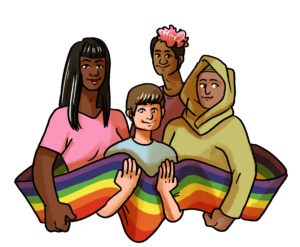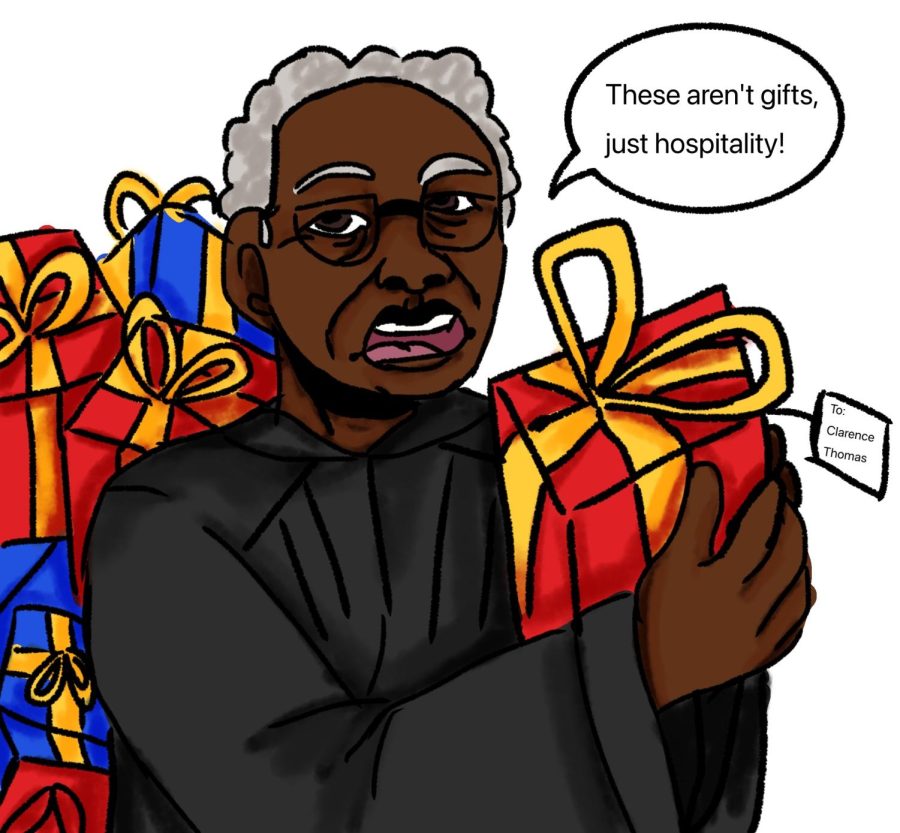LGBTQ issues have been a controversial topic for decades now; Safe Zones have given more comfort to a community that seems to be under constant fire.
In the past, faculty who’ve gone through the Safe Zone training haven’t had too much required of them. It was like in high school when you sat through one four-hour course to get your driver’s permit, except faculty sat through minimal courses so they could consider their offices a safe space for the LGBTQ community.
Some faculty were also never trained as the Safe Zone stickers were placed on office doors and once new faculty moved into those offices, there was no reason for them to train as their offices were already marked.
No longer will it be that simple; MC Lampe, the LGBTQ programming coordinator has changed the requirements.
Now, faculty will be required to attend two 2-hour courses called 101 and 102. The first is a basic course over vocabulary and LGBTQ issues, the second deals with gender identity in trans individuals and how to help and support them.
This is not all, though. In order to maintain their certification, faculty will be required to attend special topics trainings, which will include such topics as LGBTQ students of faith and of color.
New stickers will also be administered each year to ensure that there is no confusion whether or not the current faculty have been trained.
This is a giant leap in the right direction for the University.

LGBTQ, lesbian, gay, bisexual, trans and queer. They are a community that stands strong together as much of the world seemingly sends nothing but condemnation their way.
The growth and more enforced requirements by the Safe Zone program and Lampe’s programming coordinator are proof, however, that this campus is learning to embrace all love for exactly what it is, love.
Students of every walk of life are at Murray State to learn and to find out who they are – getting that accomplished is difficult enough when dealing with the ignorance of those around them. These new requirements are going to help that process significantly, decreasing the ignorance of those who should be supporting them.
Learning about your sexual identity is hard, no matter who you are. It’s difficult to deal with, especially if your family isn’t behind you. Students come to Murray and they find a new family in the friends that they make here. This new family is wonderful, truly, but knowing that the campus they live in welcomes them with open arms, too, is just as wonderful and important.
Trans students are taking some of the hardest harassment at this time; with a military ban and debates over what sports teams they can be on, trans individuals are being discriminated against from left, right and center.
The largest problem they are encountering is the gender others see them as. You’d think it wouldn’t be that hard, if they identify as a woman, they are a woman. If they identify as a man, they are a man. It’s that simple.
The transition is an extremely stressful process as well; a trans student who has started taking testosterone/estrogen is going to be in a rough period for a while, it’s when they’re going to need the most support.
White feminism is one of the biggest culprits of rejecting the trans community, claiming that trans women aren’t “real women” and averting their eyes to the abuse those people undergo. This is the kind of toxicity these training sessions will help fight.
The 102 class is going to be amazing for faculty learning to support and embrace these students. A class in trans students’ gender identity is needed, and would honestly be a great thing to offer all students, whether as an open seminar to everyone on campus or actual training sessions given during the first week of classes.
Religion can also be a hard thing to reconcile with sexuality. Many students have a religious background, making it hard for them to accept themselves for who they are. Muslim, Christian and Hindu students come from families that may reject them once they come out to them.
This is where the benefit of the special topics classes comes into play. These classes will help faculty learn how to support LGBTQ students of faith who are struggling to accept themselves. Knowing they have people behind them, backing them up, is such a relief.
Minorities may also have it harder than others when coming out; the world is already against them on one front of their lives, adding sexuality just gives society something else to attack them for.
For Arabs, coming out is seemingly unheard of because the backlash can be too violent to even mention. African Americans in the LGBTQ community are often sent out of their homes, disowned or banished from their families. It is so hard for them.
It is so hard for the whole LGBTQ community.
But it doesn’t have to be, and these training sessions are going to show Murray State that fact.





























































































